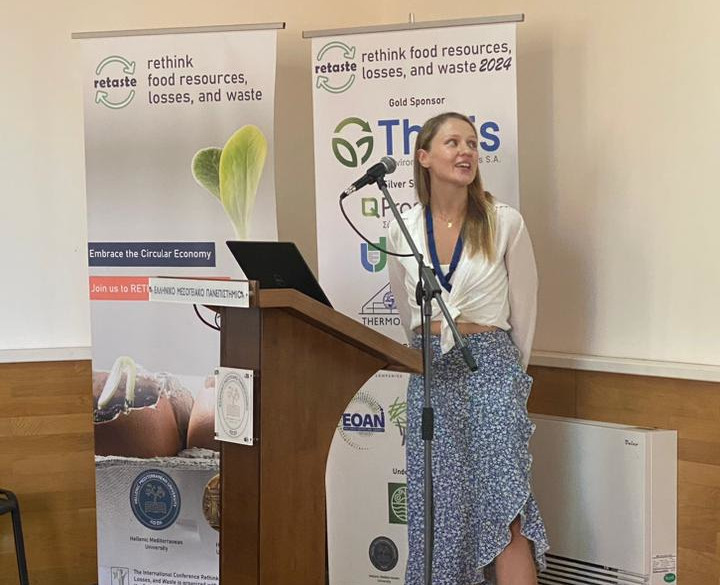
Insights to make the take-back agreement in the bakery sector in Sweden more efficient and environmentally friendly
On 26 September 2024, at the Retaste Conference, LOWINFOOD partner Louise Bartek (Swedish University of Agricultural Science) presented the results of the study carried out in the framework of LOWINFOOD to find out solutions to make the take-back agreement between bakeries and retailers in Sweden more efficient and environmentally friendly.
Influenced by market competition and consumer demands, retailers prioritize keeping shelves well stocked with a diverse array of products, although this makes them face a trade-off situation between the high availability of products and the environmental, social, and financial burdens related to food waste. Further, the take-back agreement is a common practice in Sweden. This agreement holds the bakeries responsible for forecasting, ordering, delivering and placing products at retail level, while also being financially responsible for managing the surplus bread.
This study aimed to map and quantify the surplus pathways for bread in Sweden, and from that assess the environmental impact of different prevention and valorization strategies. Researchers mapped the different pathways, as well as modelled and assessed the impact of different strategies fostering bread waste prevention and reduction. They calculated the bread loss rates both at the bakery and retail levels and then compared them with the environmental consequences of modifying or removing the take-back agreement. Input data was collected through stakeholder dialogues in combination with company information accessible through interviews and environmental reports.
Two of the most favourable scenarios were found to be the sharing of data among the supplier-retailer interface, alongside transferring retail ownership of surplus bread to retailers. The main results can be used as support by stakeholders and policymakers on how to prioritize different strategies, to provide actors with a clear view of the options they have, and the related benefits.
Share on Facebook Share on Twitter Share on Pinterest